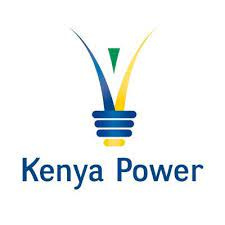Kenyans Defy Crackdown and Taxes with Record-breaking Online Betting Activity
In the period leading up to June 2023, Kenyan citizens wagered an astonishing Sh88.5 billion in online bets, setting a new record. This remarkable feat occurred despite stringent measures and increased taxes imposed on the gambling industry during that time. The Kenya Revenue Authority (KRA) benefited significantly from this surge, collecting a substantial Sh6.64 billion in excise taxes alone, which gaming companies contributed as part of the newly introduced 7.5 percent tax on wagered amounts.
To put this into perspective, Kenyans placed bets at a rate of Sh242 million per day, Sh10.1 million per hour, Sh168,333 per minute, or Sh2,806 every second. This underscores how gambling has evolved from a mere pastime into a fully-fledged economic activity. If Kenya's gambling industry were a marketplace, it would rival the Nairobi Securities Exchange (NSE), whose equity turnover in the previous year amounted to Sh94.2 billion. In isolation, these bettors could potentially cover the entire budgets for various sectors including manufacturing, industrialization, social protection, governance, justice, and the sports, culture, recreation, and tourism, with some remaining funds.
The continued growth in betting has occurred despite persistent crackdowns on existing gaming firms and the imposition of substantial taxes year after year.
New Taxes Take Effect, Impacting Various Industries
As of Friday, September 1, 2023, the second round of new taxes introduced through the Finance Act 2023 has officially taken effect, sparking concerns across multiple sectors of the economy. The new tax measures, implemented by President William Ruto's administration, aim to bolster government revenue and achieve a fiscal target of Sh2.7 trillion for the current financial year. Among the industries affected by these changes are cement, steel, paper, suppliers, the digital and creative economy, and entertainment.
One notable addition to the tax landscape is the Digital Assets Tax (DAT), which imposes a 3.0 percent levy on the sale of digital assets. This tax encompasses a wide range of assets, including cryptocurrencies, content, music, ebooks, photos, documents, videos, logos, animations, illustrations, and even social media accounts. The DAT is designed to capture income generated from these digital assets, aligning with the government's ambitions to tap into the growing digital economy.
Furthermore, to safeguard local industries, the Finance Act introduces a 17.5 percent Export and Investment Promotion Levy on imported clinker, a crucial raw material for cement production, as well as finished iron and steel products. This move is anticipated to have a cascading effect on construction costs, prompting industry stakeholders to closely monitor its impact. Additionally, imported paper, sacks, and bags will now incur a 10 percent export levy, as the government takes measures to support domestic production and reduce reliance on imports. These changes mark a significant shift in the tax landscape, impacting a variety of economic sectors and prompting businesses to adapt to the evolving fiscal environment.
Absa Bank Kenya to Expand Timiza Mobile Loan Service with High-Value, Long-Term Loans
Absa Bank Kenya is set to enhance its mobile loan service by offering long-term, high-value loans through its Timiza platform. This move comes as the bank aims to bolster the capabilities of Timiza, a mobile application introduced more than six years ago. As part of its strategic plan to expand and diversify its retail business, Absa Bank Kenya intends to transform Timiza into a standalone mobile-only financial services business. Launched in March 2018, the Timiza app currently provides users with access to mobile loans of up to Sh150,000, repayable within a 30-day period.
Moses Muthui, the Chief Strategy Officer at Absa Bank Kenya, emphasized the bank's commitment to evolving Timiza beyond its current scope. While specific timelines were not disclosed, Muthui stated that the bank would modify the product to offer loans exceeding Sh150,000 and extending the repayment tenors. He stated, "We haven't fully switched on the capabilities of Timiza. We have pretty much used Timiza as an additional short-term borrowing channel. You can expect us to expand our offering of borrowing products to longer-term loans of higher value."
With this strategic move, Absa Bank Kenya aims to provide more extensive and flexible financial solutions to its customers, contributing to the evolution of mobile banking services in Kenya's competitive financial sector.
Kenya Revenue Authority Implements Tax Hike for Used Car Importers by Lowering Depreciation Rate
In a significant move affecting the automotive industry, the Kenya Revenue Authority (KRA) has introduced a fresh round of tax increments for used car importers. The tax authority has capped the maximum depreciation rate for imported vehicles at 65 percent of their value, down from the previous 70 percent. This change was announced by Pamela Ahago, the acting commissioner for the Customs and Border Control department, who instructed KRA staff to apply the new depreciation rate schedule starting this Friday.
One of the notable impacts of this directive is a tax increase of more than 14 percent for vehicles manufactured in 2016, which are predominantly imported by dealers due to Kenya's eight-year age limit for used cars. The decision to lower the maximum depreciation rate aligns with the taxman's assertion that it brings Kenya in line with other countries within the East African Community trading bloc, consisting of seven nations. As import duty calculations are based on vehicle value, this adjustment will not only affect import duty but also have corresponding impacts on excise duty and value-added tax, as the value forms the basis for taxation calculations.
This move by the Kenya Revenue Authority has stirred debates and discussions within the automotive industry, with stakeholders closely monitoring its effects on the importation and pricing of used cars in the country.
President William Ruto's Ambitious Healthcare Plan to Impose Mandatory Contributions on Kenyan Households
President William Ruto has unveiled an ambitious plan to introduce mandatory healthcare contributions for every household in Kenya. Under the proposed Social Health Insurance Bill, 2023, Kenyan households will be required to contribute 2.75 percent of their income to fund a new social healthcare fund. While the initiative aims to enhance access to quality healthcare services, it has sparked controversy due to its potential impact on the monthly incomes of Kenyan workers.
The new scheme will replace the existing National Health Insurance Fund (NHIF), making it mandatory for all Kenyans to become members of the social insurance program to access government healthcare services. To finance this comprehensive health scheme, the government plans to increase deductions from the current range of Sh150 to Sh1,700 to a flat rate of 2.75 percent of gross monthly earnings. For Kenyans earning Sh50,000 and above, this could result in the government taking at least 20 percent of their monthly pay through various deductions, including the new healthcare contribution.
These proposed reductions come at a time when Kenyan workers are already grappling with other financial obligations, such as housing taxes and increased contributions to the National Social Security Fund (NSSF). The potential reduction in take-home income has raised concerns among citizens, prompting discussions about the feasibility and fairness of the new healthcare funding approach. As the government seeks to improve healthcare access, it will need to address these concerns and ensure that the burden does not disproportionately affect low and middle-income earners.
Kenya Power Seeks National Treasury's Help to Recover Arrears from Government-Linked Consumers
Kenya Power, the country's leading electricity distributor, is grappling with mounting financial challenges as it endeavors to recover overdue payments from large consumers with government stakes. The utility company has initiated discussions with the National Treasury to seek assistance in retrieving approximately Sh1.5 billion owed by entities that have encountered financial difficulties and have been unable to settle their power consumption bills. Notably, these entities include sugar millers in the Western region sugar belt and a prominent player in Kenya's horticulture sector.
As of the end of the full year in June 2022, Kenya Power faced a substantial backlog of overdue debt from consumers, totaling Sh19.7 billion. This amount represented an eight percent reduction compared to the previous year, but it still posed a significant financial burden for the company. In effect, this outstanding debt accounted for a staggering 13.0 percent of Kenya Power's annual total sales, underscoring the pressing need to recover these funds.
Kenya Power's Managing Director, Joseph Siror, acknowledged the complexity of the situation, stating, "The biggest challenge is those companies that went under with Kenya Power's money. Even as the government plans to bring back to life a number of these companies, we are engaging them so that they recognize that there is a bill that is owed to Kenya Power." The engagement with the National Treasury reflects Kenya Power's determination to address this financial hurdle and secure the outstanding payments owed by these government-affiliated consumers.
WHAT YOU MIGHT HAVE MISSED
Standard Chartered Bank Kenya has launched its offshore unit trust fund investment
Standard Chartered Bank Kenya has launched its offshore unit trust fund investments, known as the Signature CIO Funds. This pioneering initiative grants Kenyan customers access to a diverse range of global financial markets, including US, European, and Asian equities, as well as bonds. Developed in collaboration with renowned French asset manager Amundi Asset Management, these funds present a unique avenue for investors to diversify their portfolios and potentially reap the benefits of international markets. To participate in this exciting opportunity, interested investors will need a minimum investment of $1,000 (equivalent to approximately Sh145,400).
Britam Holdings' net profit for the half year ended June quadrupled to Sh1.64 billion on increased insurance revenue and growth in interest and dividend income.
The company, which restated its previous year's net earnings from Sh667.5 million to Sh377.9 million to reflect the switch to a new accounting standard, saw its insurance revenue rise 34 percent to Sh16.6 billion.
Kenya does not plan to go back into crude oil refining
Kenya does not plan to go back into crude oil refining following the takeover of the defunct State-owned Kenya Petroleum Refineries Ltd (KPRL) by Kenya Pipeline Company (KPC). Energy and Petroleum Cabinet Secretary Davis Chirchir said 45 tanks with a total storage capacity of 484 million litres will make Kenya competitive in the region. He said KPRL has been operating at a loss and the takeover by KPC will ensure that the resources which have been lying idle since 2013 are utilized








